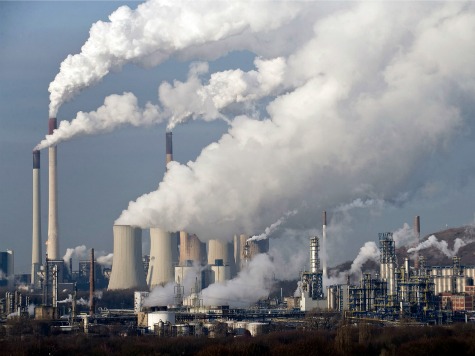
The World Health Organization (WHO) has released its latest figures on the annual death toll caused by pollution–and they look shocking. Of all the deaths across the globe in 2012, no fewer than seven million–1 in 8–are apparently the result of pollution.
Even if you take the WHO’s estimates with a huge pinch of salt–and you probably should–that doesn’t mean the pollution problem in some parts of the world isn’t deadly serious. During the 20th century, around 260 million are reckoned to have died from indoor pollution in the developing world: that’s roughly twice as many as were killed in all the century’s wars.
Here, though, is the point where the WHO loses all credibility on the issue.
“Excessive air pollution is often a by-product of unsustainable policies in sectors such as transport, energy, waste management and industry. In most cases, healthier strategies will also be more economical in the long term due to health-care cost savings as well as climate gains,” Carlos Dora, WHO Coordinator for Public Health, Environmental and Social Determinants of Health said.
“WHO and health sectors have a unique role in translating scientific evidence on air pollution into policies that can deliver impact and improvements that will save lives,” Dr. Dora added.
See what Dora just did there? He used the shock value of the WHO’s pollution death figures to slip three Big Lies under the impressionable reader’s radar.
First, he’s trying to make out that outdoor pollution is as big a problem as indoor pollution. It isn’t: nowhere near. Many of the deaths the WHO links to the former are very likely the result of the latter (cooking and heating in poorly ventilated rooms using dung, wood, and coal) which, by nature, is much more intense.
Secondly, he’s implying that economic development is to blame. In fact, it’s economic development we have to thank for the fact that there are so many fewer pollution deaths than there used to be. As Bjorn Lomborg has noted, over the 20th century as poverty receded and clean fuels got cheaper, the risk of dying of pollution decreased eight-fold. In 1900, air pollution cost 23 per cent of global GDP; today it is 6 per cent, and by 2050 it will be 4 per cent.
But the third and by far the biggest of the lies is the implication that the UN’s policies on climate change are helping to alleviate the problem.
In fact the opposite is true. It’s the UN’s policies on climate change which are killing the world’s poor.
Two years ago, at the Rio + 20 Earth Summit, UN Secretary General Ban Ki-Moon launched a program of “sustainable energy for all.”
But “sustainable energy” is often merely an environmentalist euphemism for costly, inefficient, intermittent, unreliable renewable energy–such as solar or wind: a heavily subsidized, first-world luxury which no developing country could possibly afford because it makes no economic sense.
Another energy form that would fit into the “sustainable” category would be “biomass”–ie dung, vegetation–which is the very thing responsible for all those indoor pollution deaths.
The surest, quickest way to reduce pollution deaths in the developing world would be to develop a stable electric grid system so that people could keep themselves warm and cook relatively cleanly. But thanks to the UN’s obsession with “climate change” this opportunity is being denied developing countries. The World Bank now more or less refuses to finance the building of any coal-fired power stations in places like Africa in order to promote “alternative energy sources.” This anti-cheap energy policy has been endorsed by the Obama administration.
As one Ugandan writer once put it:
Al Gore uses more electricity in a week than 28 million Ugandans together use in a year. And those anti-electricity policies are keeping us impoverished.
Not having electricity means millions of Africans don’t have refrigerators to preserve food and medicine. Outside of wealthy parts of our big cities, people don’t have lights, computers, modern hospitals and schools, air conditioning – or offices, factories and shops to make things and create good jobs.
Not having electricity also means disease and death. It means millions die from lung infections, because they have to cook and heat with open fires; from intestinal diseases caused by spoiled food and unsafe drinking water; from malaria, TB, cholera, measles and other diseases that we could prevent or treat if we had proper medical facilities.
If the WHO’s mother organization the United Nations wanted to stop those seven million pollution deaths, it could do so in short space. Unfortunately, like so many of those involved in global governance these days, it gives Gaia worship higher priority than the lives of the world’s poor.

COMMENTS
Please let us know if you're having issues with commenting.